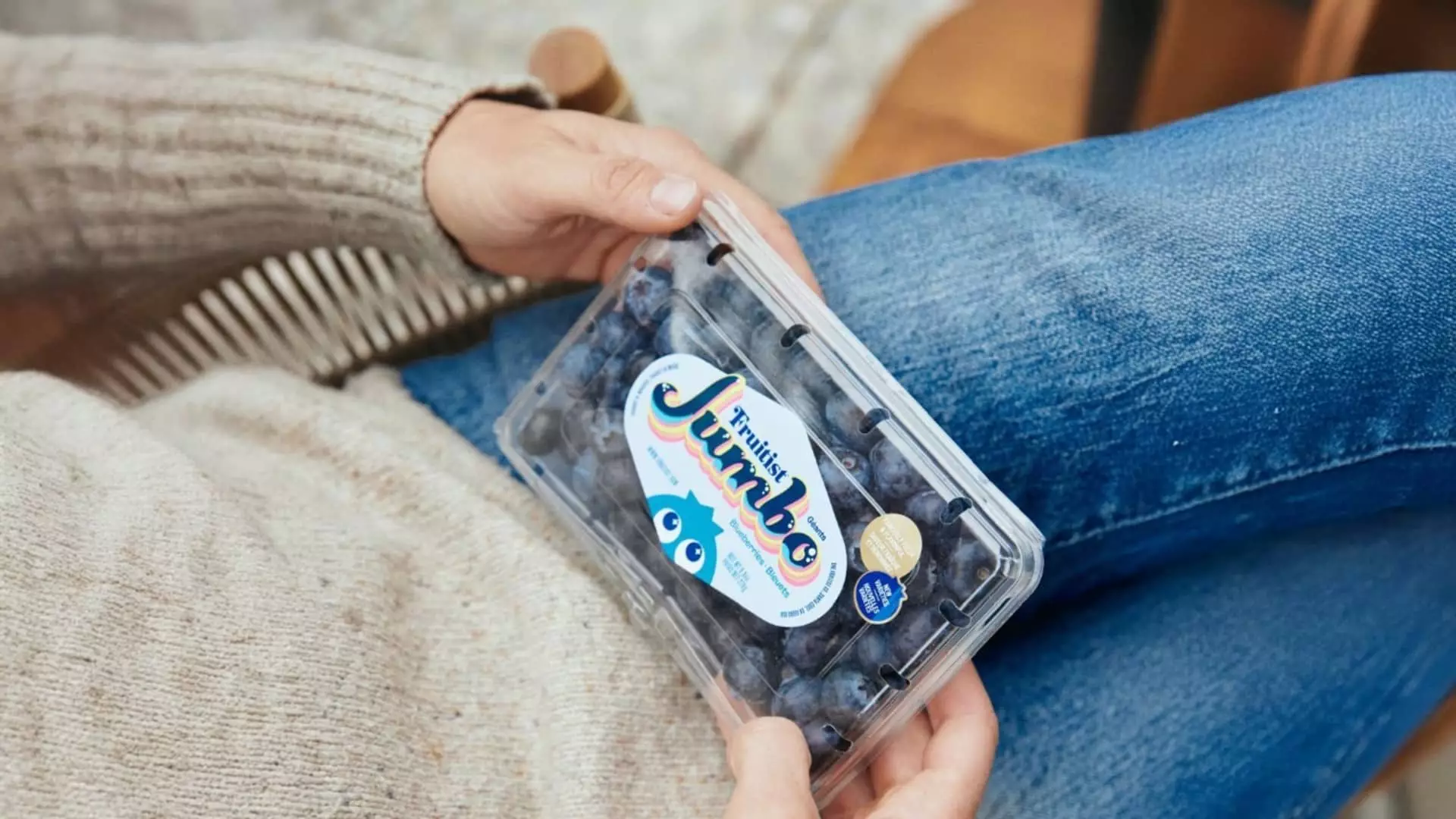In an era defined by consumer health consciousness, the fruit industry seems to be witnessing a revolution. Fruitist, once known as Agrovision, has recently announced its extraordinary success in surpassing $400 million in annual sales primarily driven by its jumbo blueberries. This emergence signals not just a growth in fruit sales, but a paradigm shift in how we view snacking options. Can we no longer afford to think of unhealthy choices as the only convenient options? Fruitist’s success offers a testament to changing consumer behavior in a landscape where health advocates are rallying for better dietary choices.
The brand’s remarkable growth, buoyed by over $600 million in venture capital, is no fluke. It rests on the solid foundation of innovation and strategic branding. Fruitist has clearly distinguished itself in a crowded market, asserting that berries can be a viable snacking option. This shift is essential, especially as traditional snacks face scrutiny for contributing to health issues like obesity and diabetes. The realization that our health can be nourished through conscious consumer choices is palpable, yet many still cling to outdated dietary habits. Fruitist’s booming sales juxtapose the struggle of mainstream retailers who are slow to catch up with the health trend.
Disrupting the Status Quo
The founder and CEO, Steve Magami, addressed the “berry roulette” consumers face when shopping for berries—where freshness and quality can often be a gamble. One might argue that this kind of disorganization is emblematic of market inefficiencies that allow massive players to dominate without any real accountability. By establishing a vertically integrated supply chain and growing fruits in controlled microclimates across different countries, Fruitist has taken radical steps towards quality assurance. This unconventional strategy highlights the shortcomings of legacy producers that rely on disjointed partnerships and outsourcing.
It raises an important question: Shouldn’t all companies in sustainable and healthy food production aim for similar transparency and quality assurance? Magami’s foresight in leveraging machine learning to determine optimal harvesting times encapsulates how technology can elevate agricultural practices. As consumers prioritize quality, it becomes increasingly vital for producers to integrate innovative approaches to meet these expectations. It’s refreshing to see a company step up to the plate—and not just for their bottom line, but to play a crucial role in improving food quality nationwide.
Marketing Healthy Choices
Fruitist’s burgeoning success also illuminates the evolving landscape of marketing. Oh, the irony! Here we have a company that has raised $600 million but has spent sparingly on marketing. While some may view this as a missed opportunity, perhaps it underscores a more organic growth strategy—one that emphasizes product quality over promotional gimmicks. The planned partnerships, such as the recent multiyear deal with Major League Soccer team D.C. United, signal that Fruitist is ready to take the next steps in amplifying its brand without compromising its integrity.
As they prepare for a possible IPO, the tension surrounding product stability in a volatile market takes center stage. Apart from the risks posed by global trade wars, the question becomes whether investors are prepared to reward genuine innovation over traditional metrics of performance. Unlike many tech companies that rely on hype, does a company devoted to producing fresh, high-quality berries stand a chance?
Navigating Global Trade Tensions
When considering Fruitist’s attempt to gain ground internationally, one can’t overlook the impending challenges posed by tariffs home and abroad. The current U.S. administration has implemented fluctuating rates that directly impact agricultural imports, yet Magami remains sanguine. By nurturing domestic production to ensure year-round supply, Fruitist seems to understand how to mitigate risk far better than its competitors. The imaginative foresight in establishing farms in multiple climates not only builds resilience but also establishes a strong foothold in various markets, including India.
What does this mean for the future of food, then? It could signify a broader trend towards local production paired with global logistical foresight—a model that sustains the market while addressing rising consumer demand for healthier options. While many companies wade through the uncertainty brought on by trade wars, Fruitist carves its own niche.
In an age where values like transparency, healthiness, and sustainability often clash with consumer habits, Fruitist has positioned itself as a beacon of hope in a chaotic environment. Its legacy may serve as a reminder that innovation, coupled with addressable business models, can disrupt traditional players and ultimately reshape our food landscape for the better. While barriers abound, the company’s approach may well be the roadmap that others in the industry should emulate.

